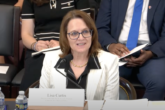November 08, 2017
Why ditching the Iran nuclear deal would be bad for China, India and the rest of Asia
Now that US President Donald Trump has declared that Iran is not in compliance with the 2015 Iran nuclear deal, the status of the Joint Comprehensive Plan of Action depends on the US Congress’ reaction. How Congress and the administration handle the process of putting additional conditions on Iran could potentially anger many US allies and partners who value the deal and believe it, in its current form, is working.
There’s good reason for that anger. A process that could lead to the reimposition of US sanctions may constitute a breach, and probably lead to a collapse, of the nuclear deal. The Europeans have already spoken out publicly about their frustration and the damage Trump could cause to transatlantic relations by violating the deal. But Europeans aren’t the only ones who should see the new Iran policy as highly problematic. China, a party to the deal, and other Asian nations, have a lot to lose from a broken deal and an impaired security partnership with the United States.
India and China, for instance, both see Middle East stability as important for their diplomatic and economic priorities. Iran is an important regional lynchpin, a fact which they have recognised in their interactions with Tehran before and after the 2015 nuclear deal. An unstable relationship between Iran and other global powers imperils that vision across a range of issues.
Read the full op-ed in the South China Morning Post.
More from CNAS
-
Transatlantic Security / Middle East Security / Energy, Economics & Security
Sanctions Aren’t Enough to Shut Down the Moscow-Tehran Black Market for WarThe geographic scope and extent of Iranian-Russian cooperation highlights the failure of traditional sanctions to prevent Moscow and Tehran from seeking key components like ch...
By Delaney Soliday
-
Assessing the Terror Threat Landscape in South and Central Asia and Examining Opportunities for Cooperation
Watch...
By Lisa Curtis
-
Since Russia Invaded Ukraine, Allies Levied More Than 11,000 Sanctions on Russia
NPR's Leila Fadel talks to Rachel Ziemba of the Center for a New American Security about sanctions which have failed to dramatically weaken Russia's economy, and its ability t...
By Rachel Ziemba
-
A Tool of Attrition
Sanctions are more of a marathon than a sprint, and the long-term picture looks much more promising than the short-term one....
By Edward Fishman



